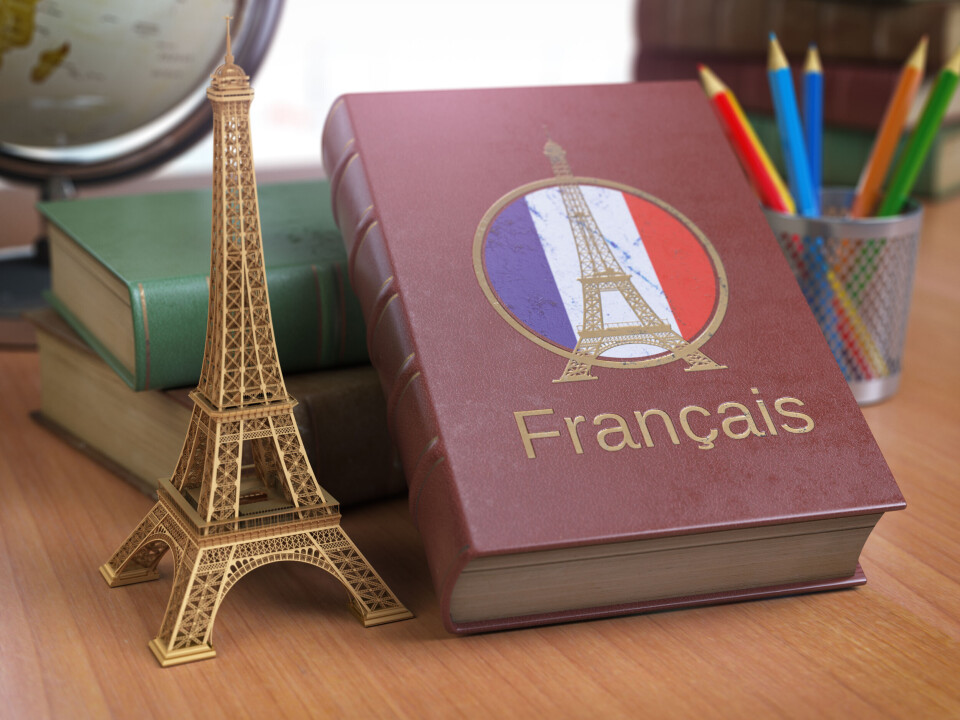-
Learning French: Have you ever dreamt in your target language?
From passive listening to active speaking, dreaming in French can indicate you are regularly practicing it
-
Learning French: what does fastoche mean and when should it be used?
Plus, can you guess the meaning behind more simple slang terms ending in -oche
-
Learning French: when and why do we say montrer patte blanche?
A French fairytale phrase for trustworthiness
‘Calling French grammar sexy takes the love of this language too far’
It is infuriating to learn yet thrilling to get right, admits Nick Inman

Notre grammaire est sexy proclaims the title of a new book whose aim is to convince the French to love their language, complicated and infuriating though it is.
‘Sexy’ is not exactly how I would describe it, but it is worth trying to understand the point the authors are making.
Grammar is important to the French and getting it right does have a certain thrill to it.
English grammar is flexible, French is not
We British, in general, do not learn the grammar of our own language.
There are good reasons for this that I have often tried to explain to French friends.
English grammar is somewhat flexible. It changes according to usage and tends towards either simplicity or ‘do what you want’, depending on your viewpoint.
Not so French. You do not mess with it. Either you are speaking it properly or you are not speaking French.
Read more: How to stay motivated with your French language learning
Many French people are worried about ‘getting it right’
In the Anglophone world, there is no institution equivalent to the Académie française, an august official body that lays down the rules of what can and cannot be said.
French grammar was standardised in the 17th century as the French spoken by the upper class in Versailles – regarded as the clearest, most logical form of the language.
The Revolutionaries of 1789 gave it a further push, insisting that every citizen speak the same.
If you panic about not being up to the task, you are not alone.
Many French people secretly or openly worried about being caught out with an inadequate grasp of grammatical rules.
All of which is a long-winded way to say you cannot get away without knowing some grammar.
Read more: Meet Hélène Carrère d'Encausse, the guardian of the French language
There’s beauty in its complexity
You can listen to people talking and parrot what you hear, but you will not be able to frame fresh, personal thoughts without at least a rudimentary understanding of how the language facilitates expression.
Therein lies the purpose of grammar: it is a shared code that allows you to construct meaningful sentences and convey a message accurately.
The 17th century bishop Bossuet said: “He who ignores the laws of grammar spurns the precepts of reason.”
Yes, I know French grammar is complicated but that is where you will find its beauty. It is both meticulous and florid.
There are precise ways to encapsulate ideas and magnificent twirls that are not at all functional but of which educated people are very proud.
And then, just when you think you are getting the hang of it, the rules are changed.
Immaculate French is beyond most mortals
This does not happen often. Only occasionally, someone dares say that perhaps French is too demanding even for the French, that the language needs to be simplified for the sake of the young.
Not everyone is able to write the impenetrable prose of a letter from the tax office.
Only rarely does the Académie admit that a rule has become archaic. Then a seismic shift takes place that filters slowly down through society.
However fluent you are, this beautiful language is bound to trip you up because the challenge of speaking it immaculately is beyond almost all mortals.
Sexy? The authors of that book promise readers a grammatical “orgy”.
However, they also admit their language is both “admirable and monstrous”, with “more exceptions than rules”.
Encouraging, eh?
Related articles
Watch: the UK and US celebrities that speak excellent French
La dictée: How a spelling test took over France
Ten French language basics to master before studying irregular verbs
























